May is Asian Pacific American Heritage Month. Teaching your heritage language to your children is a way to celebrate your family culture and your heritage culture. For my children, Chinese is their heritage language and I am the only source of Chinese language in our family.
Over the years I have noticed that more and more schools and libraries share featured resources with children, parents and educators in the Asian Pacific American Heritage Month. When I lived in Hawaii the celebration of heritage culture seems so natural and it seems like it is a part of everyday life. My kids are one of the many HAPA kids at schools. “Hapa” is a Hawaiian pidgin word used to describe mixed-race people — primarily, though not exclusively, those who are half white and half Asian.” according to Alex Laughlin in an NPR article. It was a wonderful Hawaii experience to see how ethnicity was respected and presented not only in cultural festivities but in daily life.
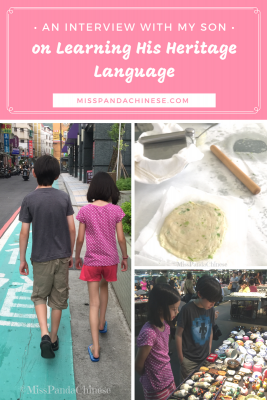
I was born in Taiwan and my parents are originally from China. They left China during the war and they settled down in Taiwan. My father was on his way to college when the civil war broke out. He could not return home so he kept moving away from the fighting with his friend. It was a long journey to Taiwan with the war, the inflation, the shortage of food, the bombs, and the worries of the safety of his beloved father. He never saw his father again. And I, never met my Grandfather. It was a tragedy. It was a difficult time for people on both sides. Those who were in China and those who were fleeting out of China.
The stories my father told me about his father and the war fascinated me. When I was little I always wondered how come my friends had many cousins and grandparents from both Mom’s and Dad’s sides and I only had grandparents, Po Po and Gong Gong, from my Mom’s side. There was something missing…
My fond memory of my Po Po 婆婆 and Gong Gong 公公 started from the languages they spoke to me, their sense of humor, and the sweet snack my grandma gave me when I visited them. My grandparents spoke Hunan dialect 湖南話 and Sizhuan dialect 四川話 and their neighbors spoke Shanghai dialect 上海話, Shandong dialect 山東話, and so on… It was so much fun to hear all the languages even though I did not understand every word they said to me. They were all trying to learn or speak their new language, that is, Mandarin Chinese. They all spoke with a unique accent. The accents were beautiful I thought. I ran around copying the words that Grandma/Grandpa and their friends said with my young friends in the neighborhood and the adults enjoyed correcting our pronunciation of their own native languages.
Children love stories. I love stories. I make up stories for my kids and my students and I have Story Time for them in Chinese. I told a few of my father’s stories to my kids and I found out that they were fascinated about it as well. They had questions. I did not know all the answers. So I would talk with my father and get answers. At the same time, I would remind my children that they need to keep learning Chinese so they can hear the “adventure” stories from their Gong Gong themselves and ask questions on their own in Chinese. There is always something lost in translation so if they can use my father’s native language they will experience more.
In Taiwan, one summer night last year, I saw the kids spending time in Gong Gong and Po Po’s room. I heard my mother laughing and talking. I heard my father’s enthusiastic voice when he told stories. I heard my son asking questions about the train story that my father told me. His grammar might not be perfect and the wording might need some polish but it was a good try. I stood outside by the half-closed bedroom door and smiled.
Language is a connector. It connects people. It connects cultural differences. It connects the world.
For the Asian Pacific American Heritage Month I interviewed my son, who was twelve years old and was being homeschooled at the time (2016). This interview was his choice of a project that he wanted to do for our homeschool Chinese program. I was pleasantly delighted to know that he wanted to share his heritage language learning experience with other children.
It is a candid interview. You will hear our chuckle and laughter. We did not have a rehearsal and he gave his true answers to each question. It might reveal that there might be a “tiger mom” in me. (Oh NO! It is definitely not true and not me. I will say that I am more a “paper tiger mom” 紙老虎. You know what I mean.) From my son’s answers you will understand that even though it is hard to learn Chinese at times he enjoys being able to communicate with people in Chinese when there is an opportunity.
The reason why he enjoys it might be very simple but it boosts his motivation in a subtle way. It takes more than a village to raise a bilingual child! There is always more to learn and there is always more to improve. I hope this video can help your child understand that s/he is not the only one on this bilingual adventure. Enjoy!
Interview with My Son on Learning His Heritage Language – Chinese
Ge Ge mentioned a few things in the conversation and I have pictures for you.
Here is the Chinese Green Onion Pancake that my son keeps mentioning in the interview.
I will have another post on how to make it at home.
He also mentioned beaches and night markets in Taiwan.
Years later from today, when my son watches this video again
I believe he will realize that his heritage language is a gift I have for him. And, he can pass it on.
Love to read more Chinese teaching and bilingual parenting resources from Miss Panda? Sign Up for Email Updates:
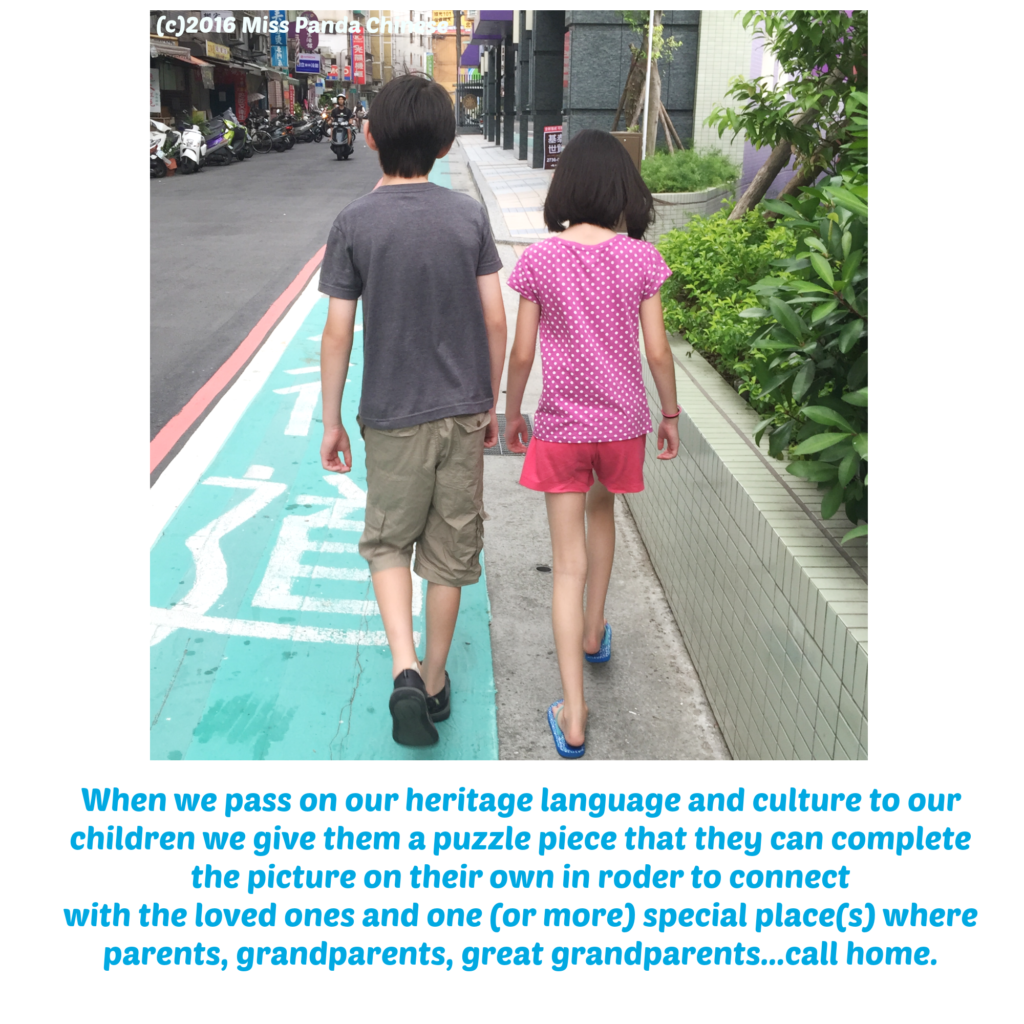
Author: Amanda Chia Chen Hsiung-Blodgett ©Miss Panda Chinese| Chia Chen Hsiung-Hsiung All Rights Reserved.
Miss Panda Chinese is a proud participant of the Multicultural Kid Blogs Asian-Pacific Heritage Month Blog Series and Giveaway. Read stories in this series at MulticulturalKidBlogs.com
Welcome to our third annual Asian-Pacific American Heritage Month Blog Series and Giveaway! Follow along all month for ideas about sharing with kids the rich cultures of this vast and varied region. Also, be sure to enter the giveaway below and link up your posts on our main page.
For even more ideas, visit our blog hops from previous year and 2014.
Pint Size Gourmets on Multicultural Kid Blogs The Art Curator for Kids Creative World of Varya Crafty Moms Share
All Done Monkey Colours of Us Bicultural Mama Wise Owl Factory Miss Panda Chinese Pack-n-Go Girls on Multicultural Kid Blogs Crafty Moms Share
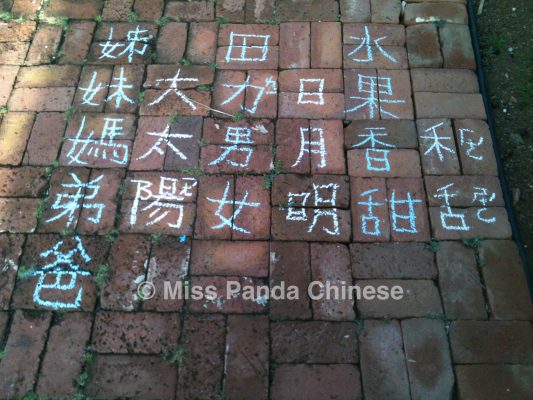
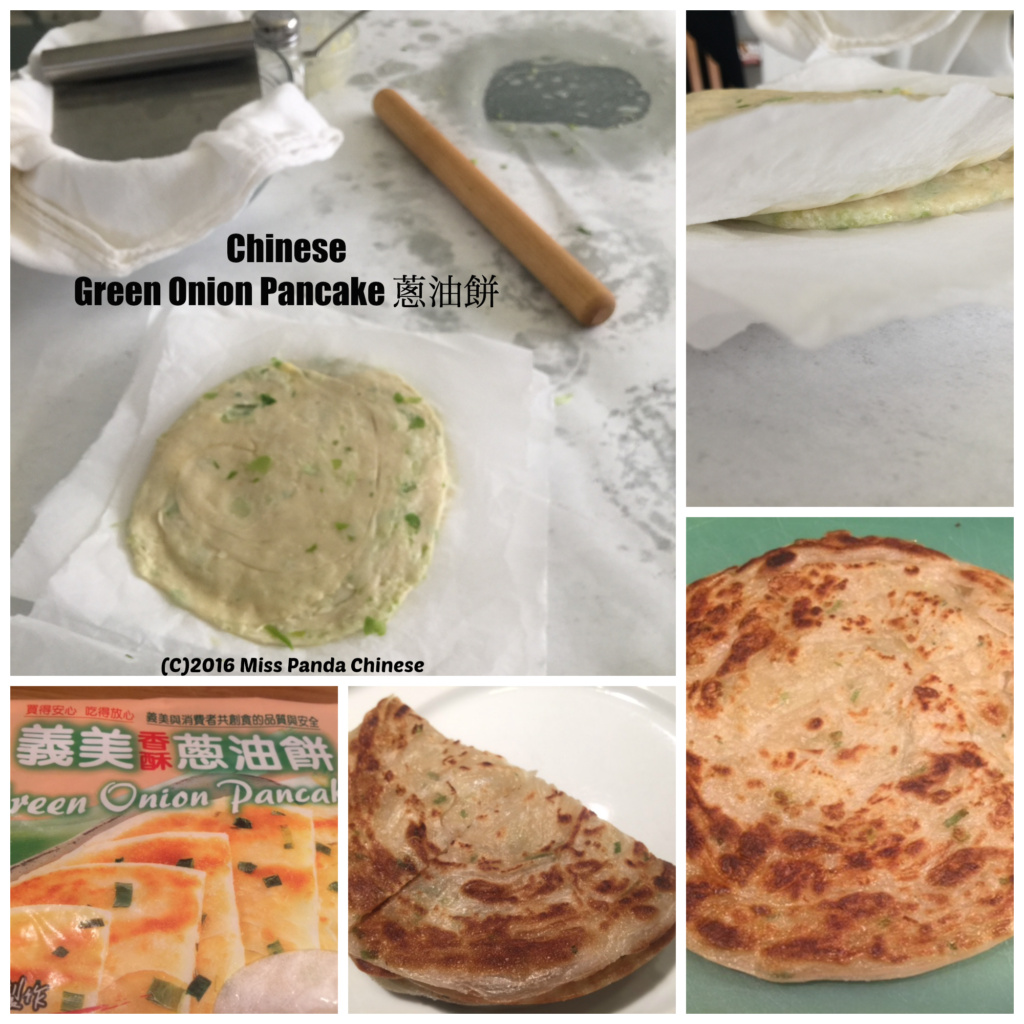
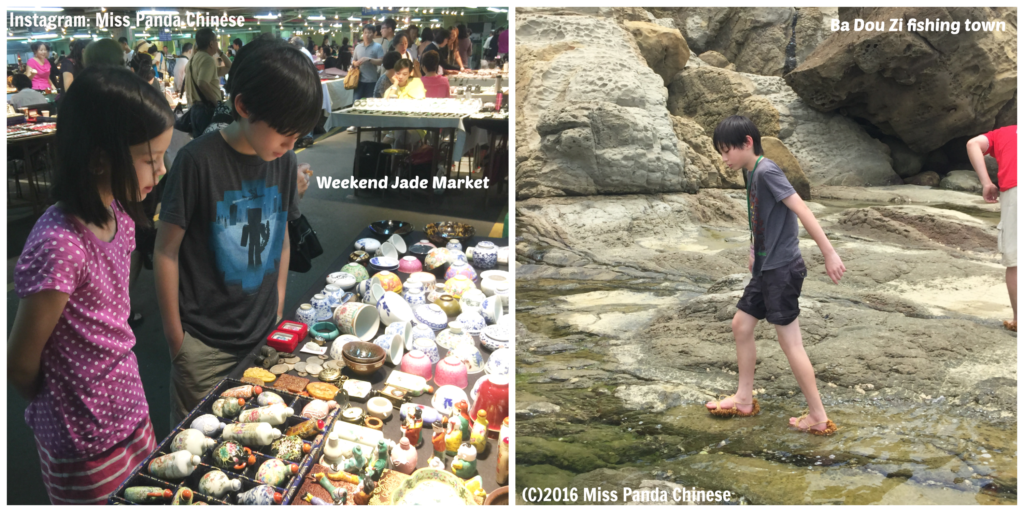
Thank you so much for sharing this and thank you to your son for participating, he did a great job. I especially loved his message to other children who learning Chinese 🙂
I have 3 children, one born in China and two born in Taiwan. The eldest has been to Taiwan twice when we were bringing her younger brother and sister home so she likes to share her memories of Taiwan with them and the things she loved are the same as your son, especially the scallion pancakes, 101 and Din Tai Fung!
We often play your CD in the car, it’s fun and makes us laugh whilst helping us learn Chinese.
I try hard to keep my children connected to the culture of their birth but of course it is hard since my husband and I are not from China or Taiwan. We are hoping to all go back to visit in the not too distant future!
Thank you very much for sharing your story! It is wonderful to know that your older daughter has fond memory of Taiwan and Chinese dishes she enjoys. On surface, this is all very simple but it actually goes a long way. All the little things can spark their motivation to learn more about the culture and the language. Since I am not located in Asia I do my best to find support community events in my area to connect the kids with the culture and the language. It is challenging for non-native speakers in some way but I also think you have advantages as well. I have been on both sides on this bilingual journey. Thank you for your kind words about my audio album. I hope it bring s joy and laughter to your family language learning journey. I will provide more virtual links to Chinese cultural events and parents alike can access to them and share with the children.
Let’ Always Keep Learning Fun! ~Miss Panda
I love this post, the story you shared of your family and I LOVED your son’s interview! You have always been my inspiration in this language learning.
Frances, Thank you for your kind words. When we hear from a child’s perspective we learn about their joy and challenge of learning their heritage language and culture. More importantly, we understand it is truly a gift we have for our children.
Amanda, thank you for sharing your wonderful story about your family’s heritage and the significance of language in your family. I especially LOVED the candid interview with your son! So fun to hear you both chatting in Mandarin! So inspiring – I am excited to show my daughter tomorrow!
Betty, Learning has many levels. Heritage is one that can be profound. On this bilingual parenting journey there are many surprises, a lot of joy and definitely challenges at times. The interview I had with my boy was during the time he was homeschooled. We truly enjoyed it. -Amanda Miss Panda
What a great interview Miss Panda. Thank you for sharing! Your son’s Chinese is very good – I hope he sticks at it as he gets older! I’d love my daughter to learn Chinese soon – we both speak English at home though but I am learning Chinese. What age do you think kids can start learning a second language (especially one that isn’t either parent’s native language…)
Penny, Welcome to the bilingual family community! You can start today. Parents can start as soon as the baby is born. For non-native speaking parents, you are learning and teaching at the same time. Children can see the enthusiasm of parents on this bilingual journey. I am looking forward to reading your story.